Table of Contents
About the Organization
The Problem
Dominant approaches to digital technologies are steeped in ideologies of market fundamentalism and have displaced the cornerstone ethics of participation, social justice, and gender equality.
How We're Different
At IT for Change, we believe that progressive development sector actors must come together to influence the techno-social structures that are redefining our societies. We seek to build bridges across different sectors to strive towards a digital society that is equitable.
What We Do
Our work, straddling Data and Artificial Intelligence (AI), Big Tech and Digital Economy, the Digital Public Sphere, Feminist Digitality, Education and Technology, and more, pushes the boundaries of theory and practice to explore new horizons for development justice.
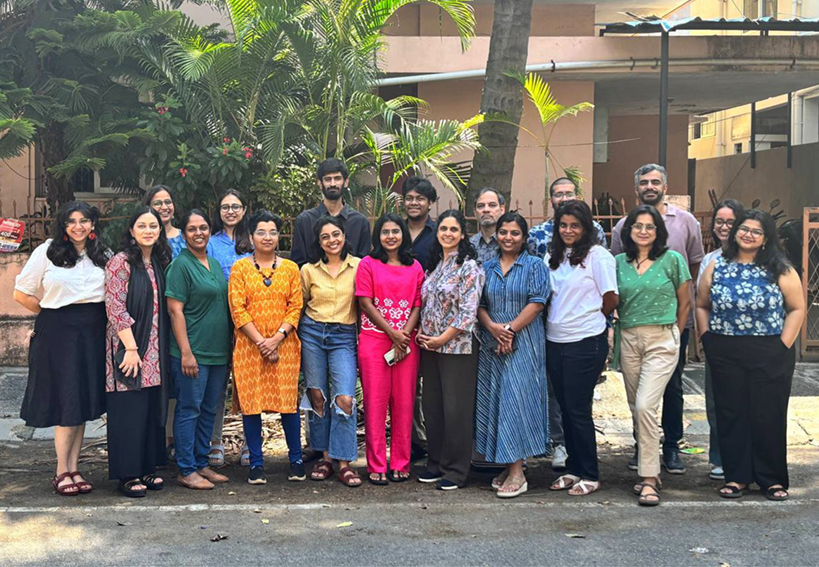
Democratizing the control and use of digital technologies so that individuals and communities are able to use them freely towards their empowerment.
A society in which digital technologies contribute to social justice and equality.
Equity, Social Justice, Gender Equality, and Democracy
- Partnering with local communities
- Forging local and global networks
- Undertaking research
- Engaging with policy spaces
- Creating new institutional capacity
A Note from the Directors
The challenges of our AI epoch can be addressed only by strengthening human capabilities for both critical thinking and compassion. Yet, a spate of studies from across the world suggests that the applications of AI have led to higher vulnerability for the marginalized, alienation of young people, and, in general, a decline in cognitive abilities. Numerous articles have raised concerns about the unethical and extreme consequences of people’s relationships with AI bots and about AI agents that take over human autonomy. The economy powering AI dystopia is not just profiteering wildly. It is stripping society of historical memory, institutional authority, and social sensibility.
For those who feel that “the AI epoch is here and we can do nothing but accept it”, Neil Postman’s fifth law of technology – that ‘technology becomes mythic’ is a warning. Unless social institutions retain the sovereign right to determine our futures, the current configuration of techno-social design–monopolized by Big Tech corporations–is bound to hurt future generations. The ‘export data, import AI’ paradigm takes us back to the ‘export cotton, import cloth’ era that impoverished India, a colony of the British. The new paradigm is not merely one of squeezing the AI colonies economically, but also politically. It is a new enslavement nudged algorithmically through trade deals and political bargains based on self-interest of the powerful.
Our Impact
1
Shaping the Global Discourse on Just Digital Economies
Over the past year, we deepened our engagement in advancing policy and public narratives of digital justice through close collaboration with our allies and partners. We held firm on the rights and justice agenda in global digital governance debates. Through participation in transnational networks, we amplified Global South perspectives and expanded the global conversation on digital economies in the age of Artificial Intelligence (AI) and Digital Public Infrastructure (DPI).
Our approach positions the Majority World not as a mere market for digital services from the Global North, but as an equal partner in shaping digital economies that are fair, inclusive, and sustainable.
We advanced a Southern vision of digital justice in the UN Global Digital Compact negotiations
Our targeted advocacy over the past year translated Southern priorities into tangible gains in the global digital governance discourse. Through the Global Digital Justice Forum (GDJF)—an international civil society network we co-founded to advance the digital justice agenda—we successfully brought a Southern perspective into the negotiations around the Global Digital Compact (GDC). The GDC is a global framework for digital cooperation and artificial intelligence adopted by the United Nations in September 2024.
In the lead-up to the Compact, we influenced debates on its text through strategic side events, formal submissions, periodic analyses of draft versions to inform civil society positions, and participation in public consultations. We were also invited by the Diplo Foundation to be a part of their expert team and conduct training sessions for UN Permanent Mission representatives—particularly from the Majority World—on key digital political economy issues within the GDC.
These sustained advocacy efforts secured concrete victories for a Southern vision of digital justice, especially in advancing the enforcement of human rights across the technological lifecycle.
The finalized GDC text explicitly recognizes the need to uphold human rights throughout the entire lifecycle of digital technologies—from pre-design to decommissioning—positioning every stage of technology as a space for accountability and rights protection.
Thanks to our consistent emphasis, the initial draft—which lacked any reference to ‘equity’ in the digital economy—was revised to include explicit language on equity. This ensured that an equitable digital economy and society remained central to the conversation in the final GDC text.
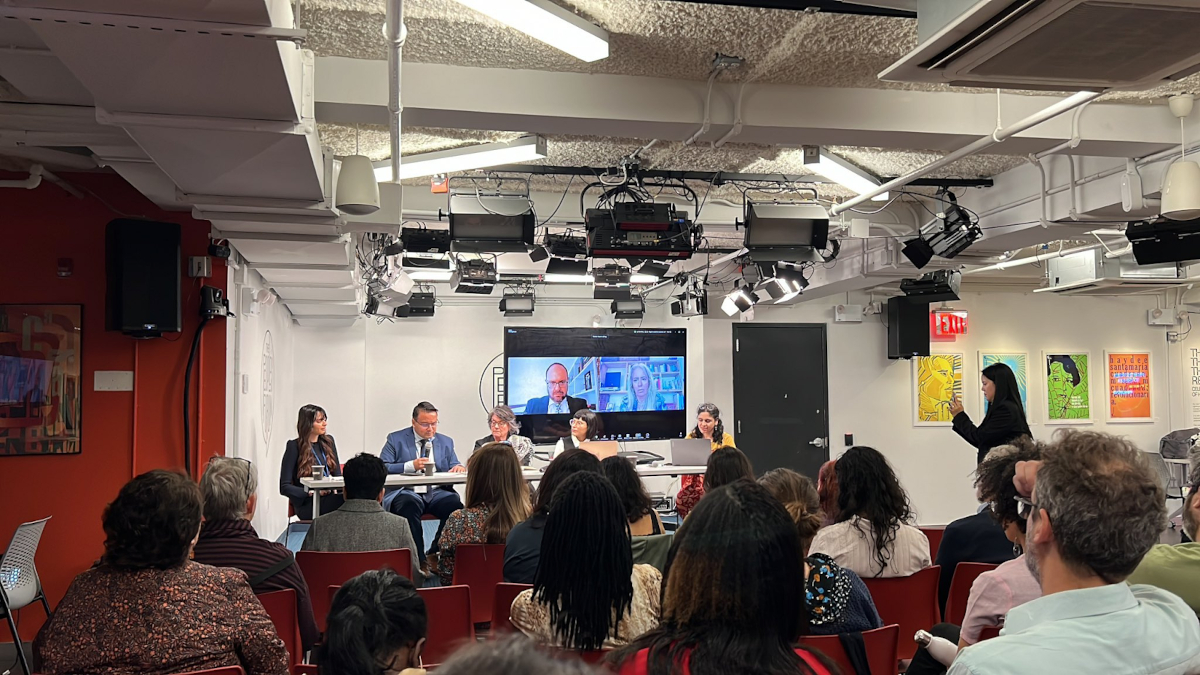
We are leading from the front in shaping the future of global data governance at the UN CSTD
In early 2025, in acknowledgment of our critical position and trusted expertise in the digital justice sector, our Executive Director, Anita Gurumurthy, was invited to join the Working Group as the Civil Society representative. Operating under the mandate of the UN Global Digital Compact, the Group is set to produce policy recommendations on data governance for development to present to the UN General Assembly in 2026, reinforcing our prominent role in shaping global norms for equitable and inclusive data governance.
The Global Digital Justice Forum’s sustained advocacy—highlighting how weak data governance fuels market concentration and digital inequality—led to the creation of a UN CSTD Multi-Stakeholder Working Group tasked with developing recommendations on fundamental principles for data governance for development.
We infused a political economy lens into global AI governance debates
We played a crucial role in bringing a political economy lens to AI governance debates, moving beyond a focus on responsible design to addressing economic concentration and the entrenchment of inequality in the current arc of data and AI innovation. In international digital governance spaces—including the UN Science Summit and UNESCO’s Consultation Paper on AI Regulation—we outlined novel approaches for governing AI innovation. As part of the UN Envoy on Technology’s AI Opportunity Scan, we contributed an analysis mapping both the promises and risks of AI for advancing the Sustainable Development Goals (SDGs).
Our interventions in these spaces have emphasized the need to proactively shape the future trajectories of AI innovation for equitable benefit sharing through an enabling policy environment. We have also joined networks and coalitions addressing monopoly power in the data and AI economy. As a member of the global civil society network Digital Merger Watch, we co-lead the AI Partnerships Working Group, examining how the close ties between AI startups and Big Tech foreclose the possibility of a level playing field for democratic AI innovation.
We also participated in the Global Learning and Strategic Convening on the Political Economy of AI in Mexico City, centering a Southern vision for an equitable and sustainable AI future.
Our engagement in such high-impact global coalitions enables us to bring grounded Southern perspectives into global policy conversations and strategically position ourselves within influential networks shaping the political economy of AI.
We developed a robust framework for Digital Public Infrastructure grounded in public value principles
Digital Public Infrastructure (DPI) has emerged as an alternative to privately controlled digital ecosystems, gaining traction among policymakers and civil society alike. Over the past year, we critically analyzed DPI developments to identify pathways for inclusive, equitable, and rights-centered DPI that contribute to public value creation.
In partnership with the University of Western Australia (UWA), we conducted sectoral research on building flourishing DPI-enabled innovation ecosystems in healthcare, agriculture, and urban mobility. Our report, ‘Recovering the Public in India’s Digital Public Infrastructure Strategy,’ presents insights from this research on shaping DPI ecosystems for social good innovation. We shared these insights with officials from the Ministry of Electronics and Information Technology, Government of India, through a roundtable on inclusive digital transformation co-organized with Mazdoor Kisan Shakti Sangathan (MKSS) and Social Accountability Forum for Action and Research (SAFAR), bringing together civil society actors, technology experts, and government representatives to evaluate pathways to strengthening DPI’s strategy, particularly in the public welfare system.
Drawing on these findings, we began developing a ‘Model Framework’ with UWA researchers, outlining foundational and operational principles to guide policymakers across the globe on effective techno-design and institutional choices in the design and deployment of DPI. We also participated in the Data Privacy Global Conference 2024 in São Paulo, sharing insights on DPI, data protection, and regulation of emerging technologies.
Through these efforts, our thought leadership has advanced the discourse on DPI by challenging the techno-solutionist bias of dominant approaches and advocating for the state to actively shape digital innovation pathways, redistribute benefits equitably, and design and deploy rights-centric DPI ecosystems.
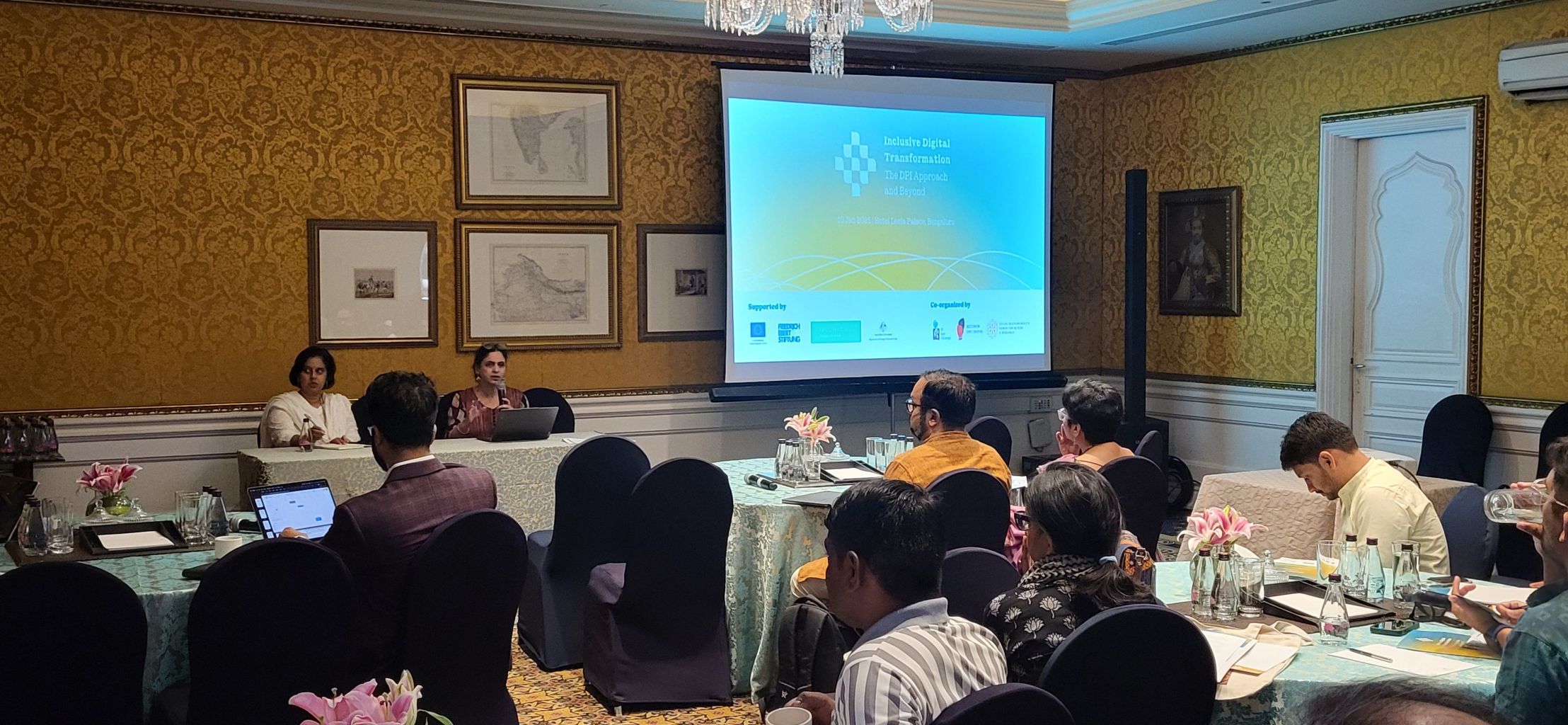
2
Strengthening Solidarity in the Digital Justice Movement
Over the past year, we leveraged our convening power to mobilize global civil society action to rein in the unchecked power of Big Tech, build sectoral perspectives on data justice, and advance new frontiers in the labor rights agenda within platformized labor markets. We also gained growing recognition as a civil society sherpa, a go-to space for decoding the institutional processes of datafication.
We galvanized civil society for a global campaign on tackling tech broligarchy
We have been deeply concerned about Big Tech’s monopolistic grip and its growing sway over political systems worldwide. In 2025, we rallied global civil society to sound the alarm on this crisis, calling out the US-led broligarchy and techno-fascism reshaping governance and digital economies. Through this effort, we amplified Majority World voices and built a united front to challenge the corporate takeover of our digital and political futures.
In February 2025, together with partners from the Association for Progressive Communications (APC) in Africa and the Global Digital Justice Forum, we organized a civil society strategy convening in South Africa. The meeting brought together 25 activists to shape a people-centered vision of digital governance. A key outcome of the convening was the Johannesburg Communiqué—a civil society appeal urging governments and international organizations to adopt and enforce policies that curb the monopolistic and extractive powers of corporations, protect individual and collective freedoms, and guarantee the rights of nature. Translated into 11 languages and endorsed by over 150 organizations and individuals worldwide, the communiqué demonstrated the strong global resonance of our campaign messaging.
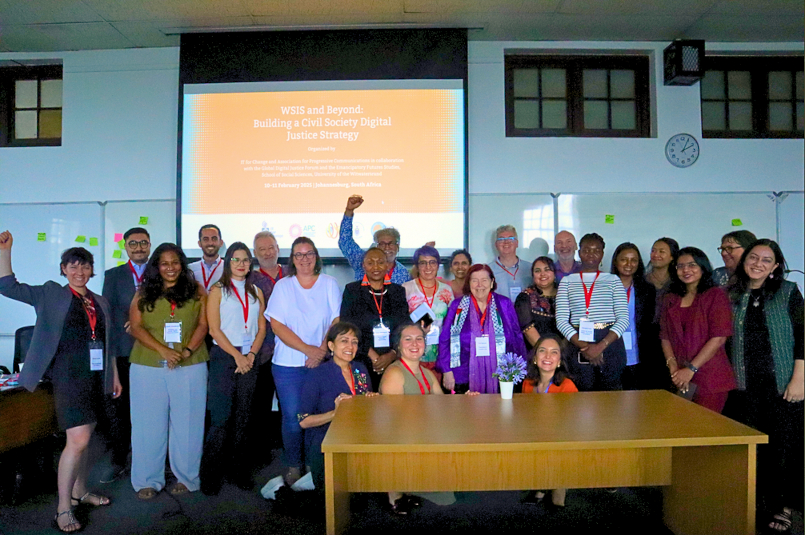
We forged a civil society working group to center equity and justice in global data governance
To advance our people-centered and Global South–driven vision of data justice, we recognized the need to build cross-sectoral alliances that ground these debates in specific contexts and the lived realities of communities worldwide.
To this end, we established a civil society working group to generate evidence on pathways for placing equity and justice at the forefront of data governance debates across public health, biodiversity, food sovereignty, and climate change mitigation and adaptation.
Our partner organizations in this effort—Open Knowledge Foundation, Third World Network, FIAN International, People’s Health Movement, and ETC Group—bring deep, domain-specific expertise to these issues.
Through a series of consultations, workshops, and feedback mechanisms, we provided strategic leadership to connect these case studies to digital governance frameworks and build forward-looking, sector-specific data imaginaries rooted in real-world experiences. Members of the network also participated in a briefing for the UN Committee on Economic, Social and Cultural Rights to share emerging evidence on the intersections between data injustice and human rights violations.
We joined hands with civil society & trade union movements and promoted a decent work agenda at the ILO
Building toward the International Labour Conference (ILC) scheduled for June 2025, we are advocating to center workers’ rights in the platform economy. For the first time, the Conference of governments, platform companies, and workers is set to discuss a global instrument to enshrine decent work in the platform economy.
In the lead-up to the ILC, we have partnered with a range of civil society and worker organizations—including trade union federations, think tanks, and philanthropies—to ramp up advocacy for meaningful guarantees of workers’ rights, particularly data rights and freedom from algorithmic (mis)management.
Our partners included the Gig and Platform Service Workers’ Union (a women-led union from India), UNIA (a Switzerland-based trade union), and a coalition of civil society organizations, the Interfaith Center for Corporate Responsibility, Equidem, Action Center on Race and the Economy, IRIS, PowerSwitch Action, the Centre for Law and Transformative Change, and The Worker Agency. We are also providing advisory support to Public Services International for submissions and feedback on the ILO’s framing reports ahead of the Conference.
Through our embeddedness in labor networks, we are shaping ideas about decent work and labor laws using digital justice frameworks. We aim to translate this advocacy into meaningful gains for workers’ data and algorithmic rights at the ILC in the coming year.
We built civil society capacities to respond to the new challenges for equity and social justice in a digitalizing world
In 2024–25, we undertook a range of initiatives to strengthen the capacity of civil society actors to respond effectively to the challenges posed by Big Tech–driven digitalization to social justice and equitable development in their sectors and regions.
In August 2024, Public Services International invited us to conduct a session on digital trade and labor rights at a workshop in Manila for over 30 trade unions in Southeast Asia focused on trade justice. In the same month, we successfully launched the second cohort of the National Gender Fellowship Program, supported by the European Union and Friedrich Ebert Stiftung. This year-long capacity-building program aims to deepen scholarship in the emerging field of gender studies of the digital economy by mentoring early-career women scholars in India. We selected and supported 10 fellows out of 250+ applications received. The program began with a two-day training to develop fellows’ understanding of feminist research methodologies and critical digital studies, followed by guidance in developing their research proposals. Fellows are conducting research on a range of topics, including digitalization in nursing, domestic work and digital platforms, transgender experiences online, and social media entrepreneurship—demonstrating the diversity of scholarship the program enables.
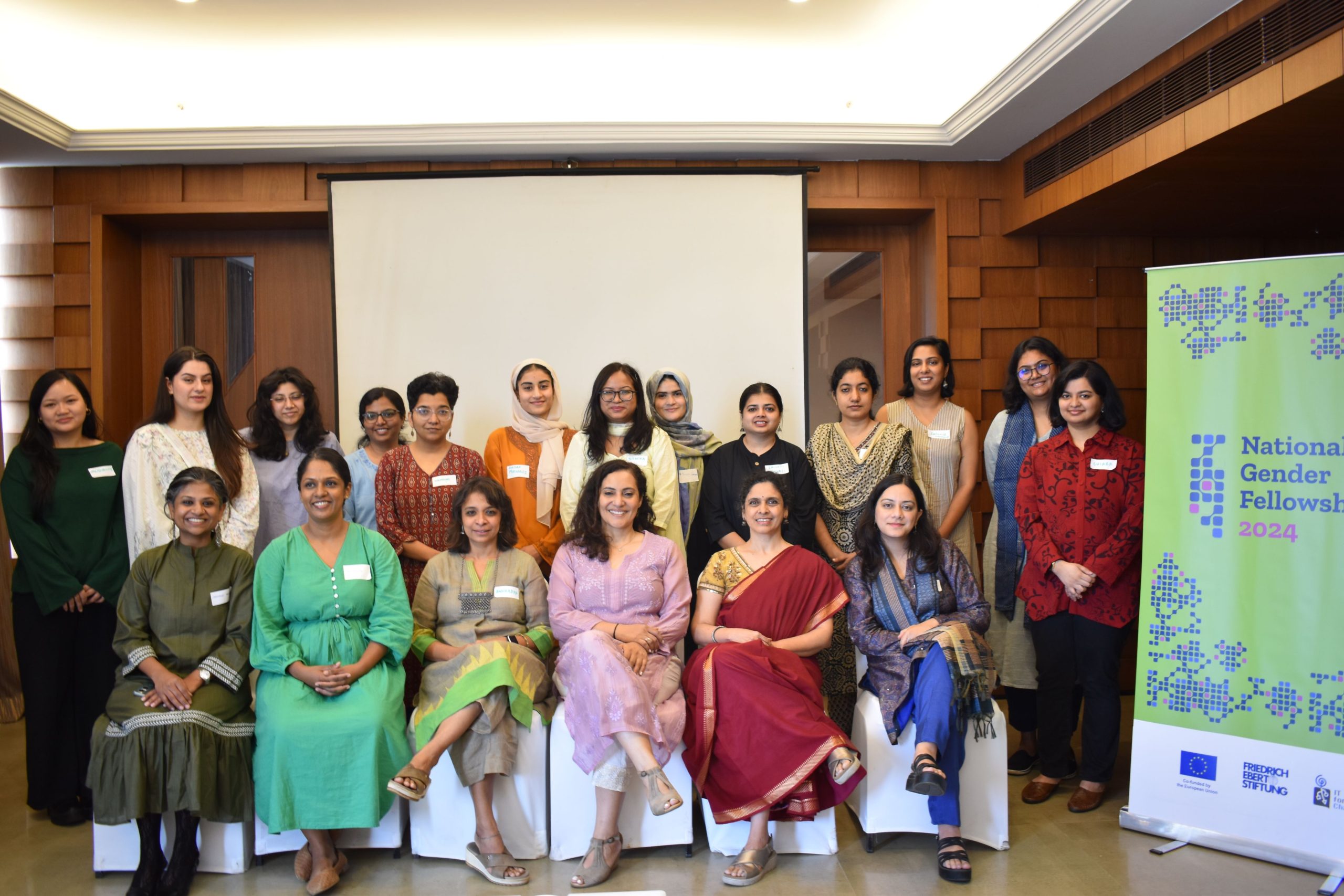
Our flagship institute, Frontiers and Frames for a New Digitality, returned for its second edition, bringing together over 20 participants for five days of immersive workshops, exercises, and panel presentations on Southern digital justice. We also supported the pedagogical initiatives of our partner organizations, including the Digital Capitalism course offered by the Transnational Institute. Advancing our mission to decolonize knowledge in the digital sphere, our leadership led capacity-building and knowledge-exchange activities through masterclasses that explored the rise of digital capitalism, its societal impacts, and strategies for imagining alternative digital futures.
Through these efforts over the past year, we accelerated the building of Southern solidarity and strengthened civic capacity to shape digital governance trajectories for equity and social justice.
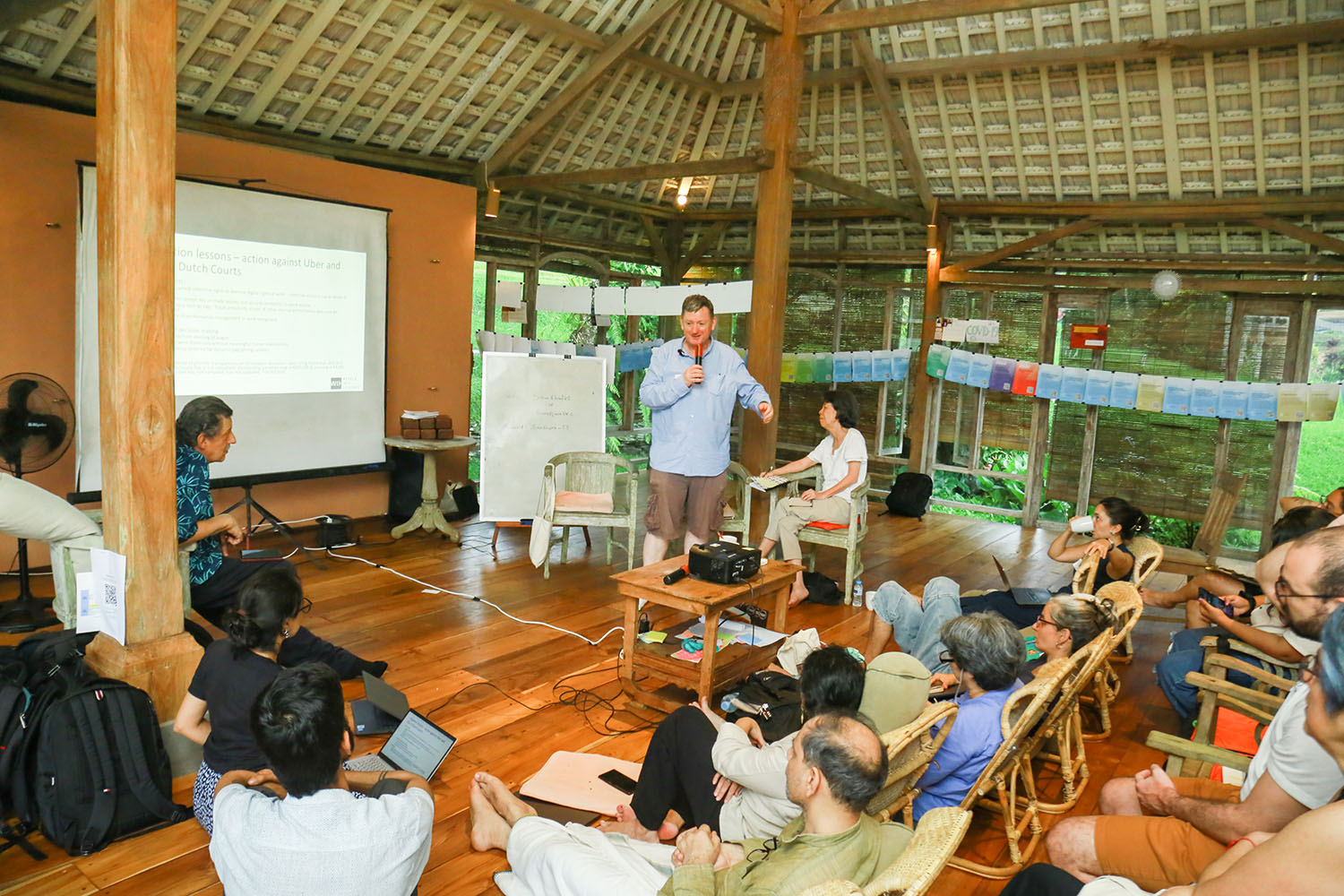
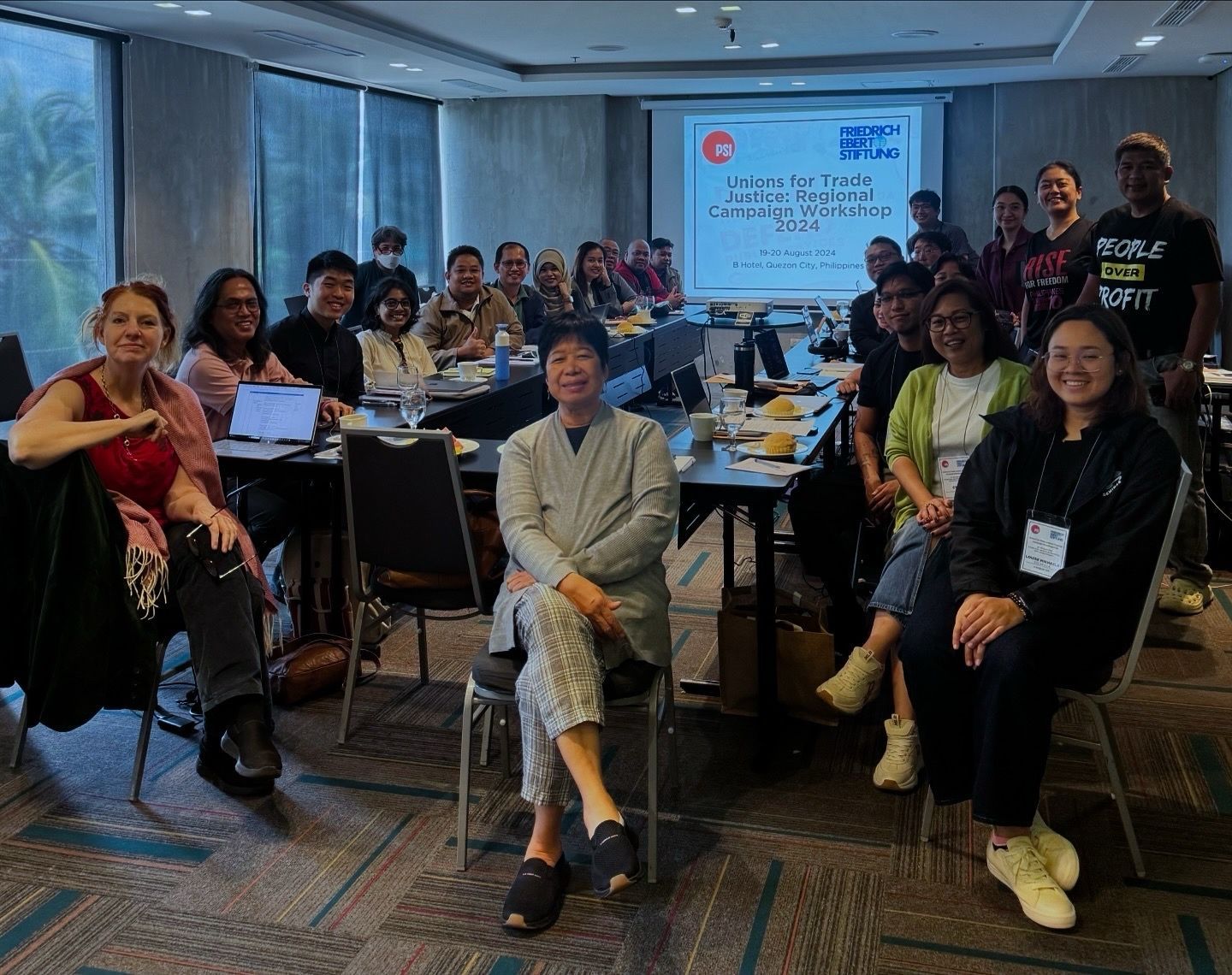
3
Nurturing Feminist Digital Imaginaries
We firmly believe that movements for digital justice must not only critique extractive digital superstructures but also cultivate feminist alternatives. Through research, policy advocacy, and capacity-building initiatives, we are advancing feminist imaginaries of the digital economy while strengthening institutional frameworks to put these principles into practice. This commitment was recognized when our Executive Director, Anita Gurumurthy, received the prestigious UNFPA@50 Special Laadli Award for Advocacy to Bridge the Digital Gender Divide — affirming our leadership in driving an inclusive and rights-centered digital ecosystem in India.
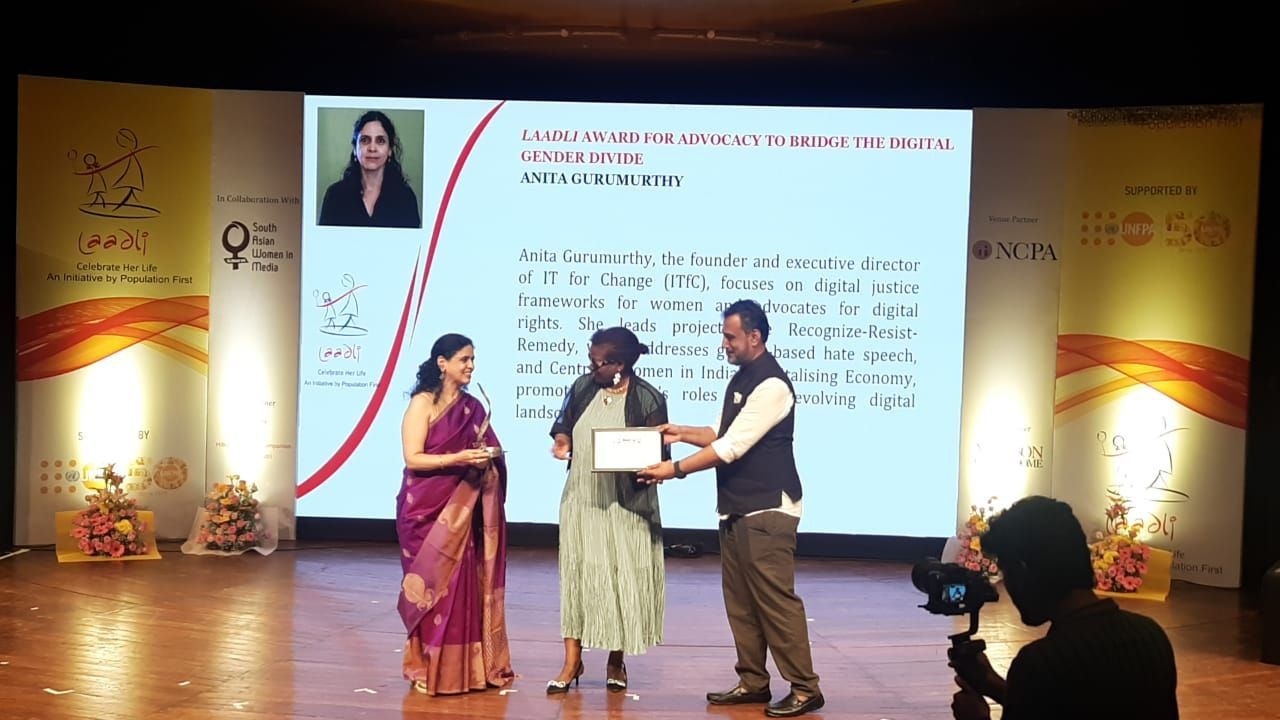
We introduced fresh perspectives to the debate on diversity, equity, and inclusion in AI systems
A critical aspect of our work has been pushing the gender analysis of AI systems beyond narrow technical frames, such as de-biasing and techno-design for gender equality and diversity. Our feminist analysis unpacks how algorithms in digital capitalism actively mobilize gender differences, while demonstrating pathways towards a feminist commons to secure freedoms for women and other historically marginalized groups.
We advanced this analysis through a crucial policy contribution; the Global Partnership on Artificial Intelligence’s (GPAI) report,‘ Towards Substantive Equality in Artificial Intelligence: Transformative AI Policy for Gender Equality and Diversity’, launched in November 2024. The report applies the substantive equality framework of the Convention on the Elimination of All Forms of Discrimination Against Women (CEDAW) and other human rights instruments to offer concrete policy recommendations for fostering inclusive and democratic innovation.
The report also outlines measures to ensure meaningful participation in AI governance, promote transparency and accountability for harm prevention, and strengthen access to justice. It also highlights robust case studies of promising initiatives from the Global South. As the OECD’s initiative, the GPAI holds considerable discursive power in the AI policy space today, and our work has been able to bring a critical politics of gender to this space.
At RightsCon 2025, we convened a hybrid roundtable on hate speech and AI, bringing together critical perspectives from South Asia, Kenya, and Brazil. The discussion underscored the challenges posed by AI-driven content moderation, which—trained primarily on North American datasets—often fails to detect harmful speech in non-English languages. Our interventions were recognized in the MIT Technology Review, reflecting the global relevance of our insights.
We brought evidence of women gig workers’ extreme precarity to the Beijing+30 review process
In March 2025, at the UN Commission on the Status of Women (CSW) review of the Beijing Platform for Action (Beijing+30) in New York, we successfully presented a four-point agenda for gender equality in the platform economy. This agenda was developed through regional consultations across Asia-Pacific, Africa, Europe, and Latin America with more than 50 researchers, trade unionists, cooperatives, academics, and civil society activists.
These discussions underscored the importance of guaranteeing foundational rights and principles at work for all women platform workers, designing gender-responsive social protection frameworks for platform work, and advancing a data rights agenda suited to a gender-equal world of work. They also emphasized the need for a new international labor standard for automated work management systems grounded in a gendered approach to privacy, personal data protection, and the elimination of algorithmic discrimination.
We launched the report at a side event co-organized with the Permanent Mission of Germany, Friedrich-Ebert-Stiftung (FES), International Trade Union Confederation (ITUC), and Development Alternatives with Women for a New Era (DAWN). The event was extremely well received, drawing over 100 participants, including policymakers from the Global South, platform worker unions, technologists, and feminist activists.
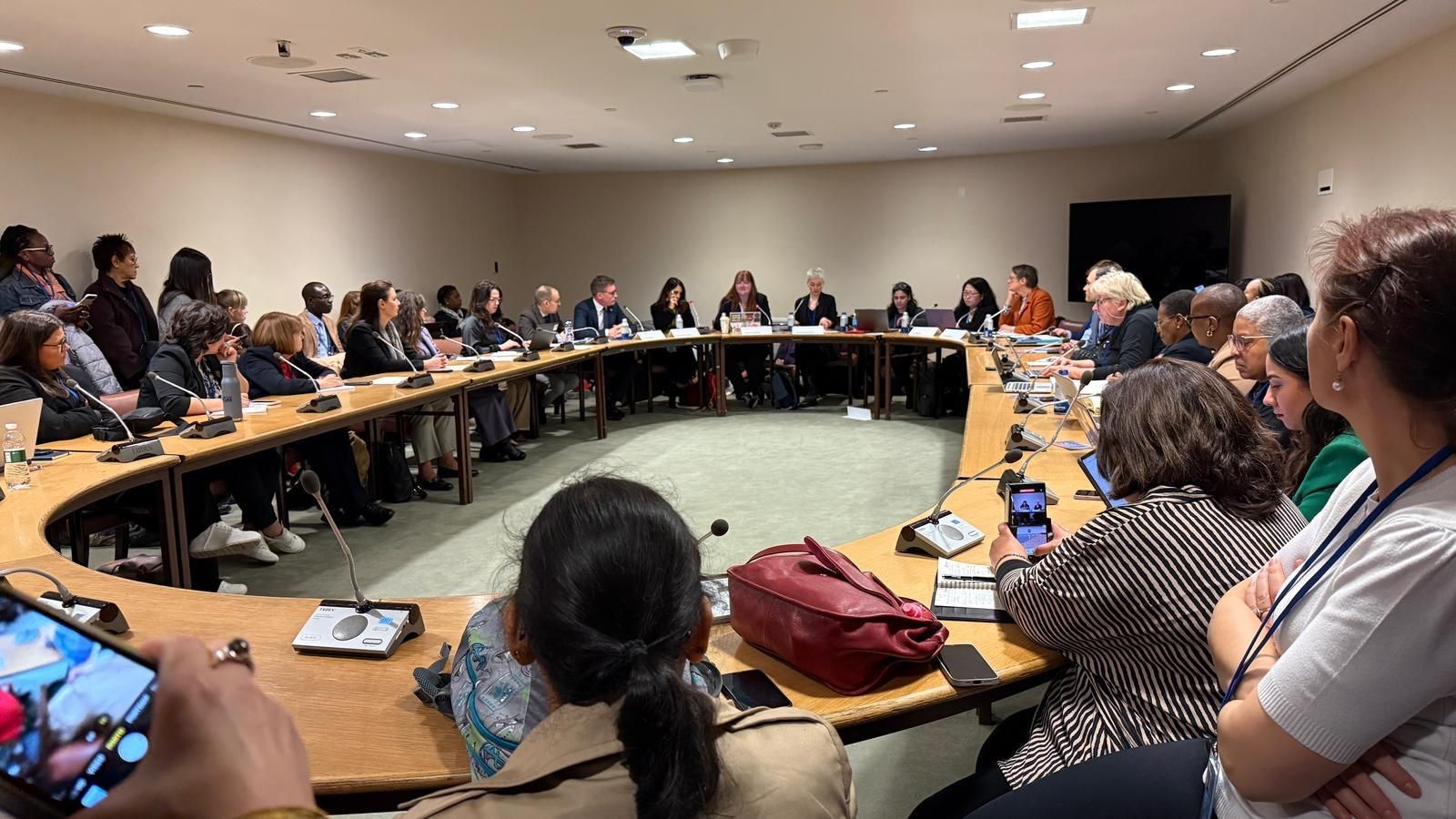
We demonstrated platform pathways for women’s economic empowerment
As part of our ongoing project supported by the European Union and Friedrich Ebert Stiftung (2020–25), we partnered with LabourNet to develop a social enterprise–managed labor platform model for beauty workers in the urban services sector. Through this knowledge partnership, we created a techno-design blueprint for a subscription-based social enterprise platform that onboards both workers and clients only after verification and is committed to creating a fair labor marketplace.
The platform’s architecture, designed through extensive consultations with beauty workers, is grounded in worker-centric design principles. Key features include self-managed workflows, task assignments aligned with workers’ preferred schedules and specializations, enhanced safety mechanisms such as client verification before onboarding, and robust support and feedback loops for grievance redressal.
We also collaborated with Vrutti and the SEWA Cooperative Federation to create effective data stewardship mechanisms for sustainable livelihoods. Insights from this work are being compiled into techno-design blueprints to guide other social enterprises and cooperative organizations in India to leverage platform, data, and AI technologies for empowering women workers.
At the International Cooperative Alliance Global Cooperative Conference in New Delhi, we presented our work on cooperative-led digital governance, highlighting the importance of equitable data governance principles through participatory, ground-up processes.
These interventions reaffirm that “small-is-beautiful” models of platform and data innovation—rooted in local realities—are both possible and sustainable when supported by dedicated financing and strong institutional frameworks.
We championed women-led digital transformation in rural digital Karnataka
As our field center in Mysuru, Prakriye expands its network of community information centers, Namma Mahiti Kendras (NMKs) across villages, Hagaranalli village has emerged as a powerful example of women-led digital transformation. These information centers represent far more than internet access points. They serve as transformative spaces where marginalized rural women and girls access crucial information on government schemes, welfare programs, education, and employment opportunities. Women engage in discussions, receive digital literacy training, and get timely updates through IVRS messages, while girls explore media and storytelling. The centers empower women and girls to experiment with technology on their own terms.
We establish each center by identifying villages where women’s collectives are ready to own and manage these resources. In Hagaranalli, women demonstrated this potential by uniting to challenge village leaders’ refusal to allocate a community building for the center. They strategically highlighted the NMK’s value as a community resource and successfully secured an unused panchayat building. Their journey tested their resolve at every turn—from battling bureaucracy for electricity connections to securing resources for painting the building.
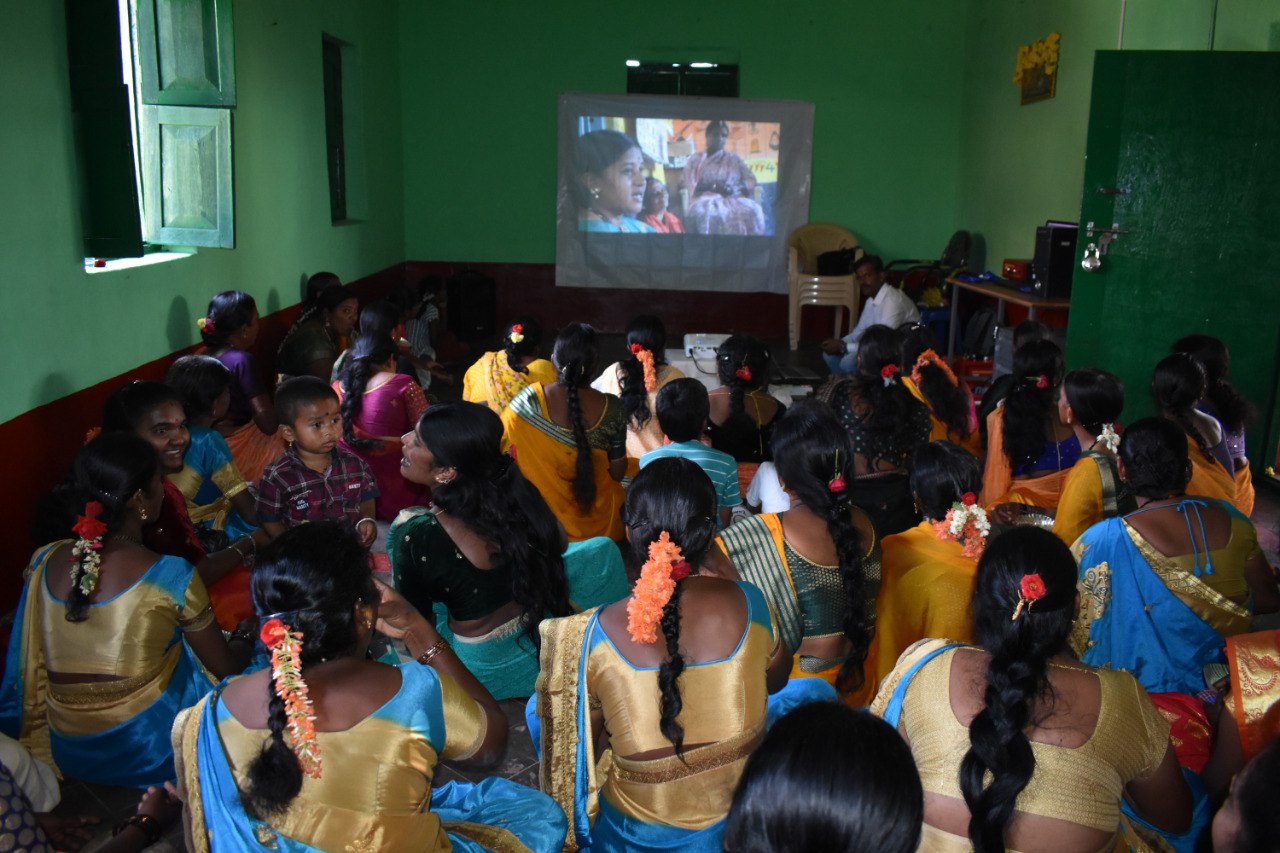
The women transformed each obstacle into collective action, gaining support from local cooperatives and contributing their own savings when funds fell short. For the center's inauguration, they secured attendance from the very leaders who had initially dismissed them, along with government officials who rarely attended village events.
The remarkable agency and ownership these women displayed validate our participatory approach, placing women at the center of rural digital transformation.
4
Transforming Public Education through Teacher-Led EdTech
Through our work in Karnataka, we are reimagining education by placing teachers at the center of a people-driven, technology-enabled approach. Our initiatives strengthen teacher capacity, promote inclusive classrooms, and show how digital tools can advance equitable learning. By integrating audio-story pedagogy, hands-on training, and contextualized digital resources, we enable educators to create transformative learning experiences—from making language education more engaging to helping adolescents navigate digital risks, social pressures, and patriarchal norms. In rural contexts, we support teachers in demystifying technology’s creative potential, using it as a tool for critical thinking, confidence, and social change.
We transformed language learning through audio stories
We challenge conventional narratives by leveraging audio-story pedagogy, which mirrors the natural ways children acquire language—through meaning, emotion, and context. Audio stories use sound effects and voice modulation to help students infer meaning and connect with their home language, strengthening comprehension and communication skills essential for lifelong learning.
Karnataka, one of the most linguistically and culturally diverse states in India, provides schooling in multiple language mediums beyond Kannada, including English, Tamil, Telugu, Marathi, and Urdu. While offering instruction in multiple languages is an important step, students and teachers face significant challenges. A major hurdle is the gap between the language children speak at home and the language used in school. For example, in Tamil- and Urdu-medium schools, teaching is conducted in formal Tamil or Urdu, while students often speak Tamil dialects or Dakhni at home. For these students, linguistic diversity often translates into exclusion.
When instruction does not account for a child’s home language and culture, it imposes a cognitive toll, as children struggle to decode the language while learning content, and an emotional toll, as children begin to associate their mother tongue with “backwardness,” leading to disengagement and reduced confidence in their own learning abilities.
Through the Kathe Khajane program, in partnership with the Karnataka Department of State Educational Research and Training (DSERT), teachers received hands-on support to record, edit, and publish audio stories. This year, the program expanded to Tamil and Telugu, delivering contextualized, engaging resources across all language mediums in government schools. Developed with and for teachers, these audio stories became practical, classroom-ready tools that spark curiosity, strengthen listening and speaking skills, and reintegrate storytelling into education.
A Tamil-medium teacher highlighted the impact of the program:
“The workshop was very useful, because so far, we don’t have any collection or archive of Tamil stories we can use. Teaching them in Tamil, in their mother tongue, will impact them better. This year, we are looking forward to combining all these stories we have recorded with our lessons, and using them effectively for our students”.
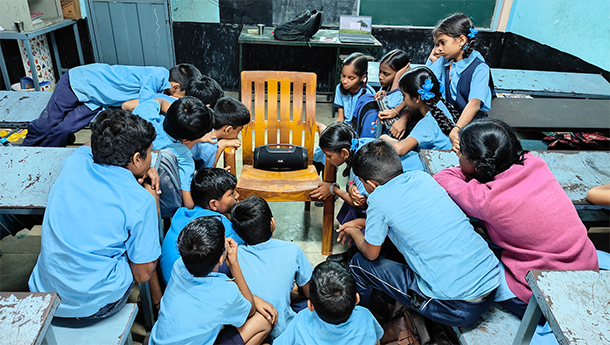
We built teacher capacity and advanced tech-enabled pedagogy
The Language Education through Audio Story-Based Pedagogy, Karnataka (K-LEAP) program made significant strides in empowering teachers to harness the transformative potential of audio stories in language learning. Through a two-pronged approach—resource creation and techno-pedagogical capacity building—the program cultivated holistic teacher development and strengthened classroom practices by integrating technology meaningfully into pedagogy.
Building on previous efforts, this year the program expanded its scope: launching the teacher resource Kathe Khajane, introducing educators to techno-pedagogical frameworks such as Technological Pedagogical Content Knowledge (TPCK) and Universal Design for Learning (UDL), and observing teachers demonstrate creativity and understanding in applying these approaches in their classrooms. Teachers collaborated to produce over 450 audio stories, now available as Open Educational Resources (OER) on the free and open-source mobile app AntennaPod. Offline accessibility via teachers’ phones ensures that even schools with limited resources and connectivity can use these high-quality, contextually relevant learning tools and resources.
Teachers began applying these techniques in classrooms, reporting enhanced student engagement, confidence, and language skills. In Bengaluru North district, targeted follow-up with Urdu-medium teachers demonstrated not only adoption of resources and strategies but also active peer learning and sharing through a community of practice. The program also facilitated techno-pedagogy workshops across six districts, engaging language teachers, Cluster Resource Persons, and Block Resource Persons. Workshops combined immersive demonstrations, discussions, and hands-on activities, and were tailored to address language-specific and context-specific learning challenges in English, Kannada, Urdu, and Marathi.
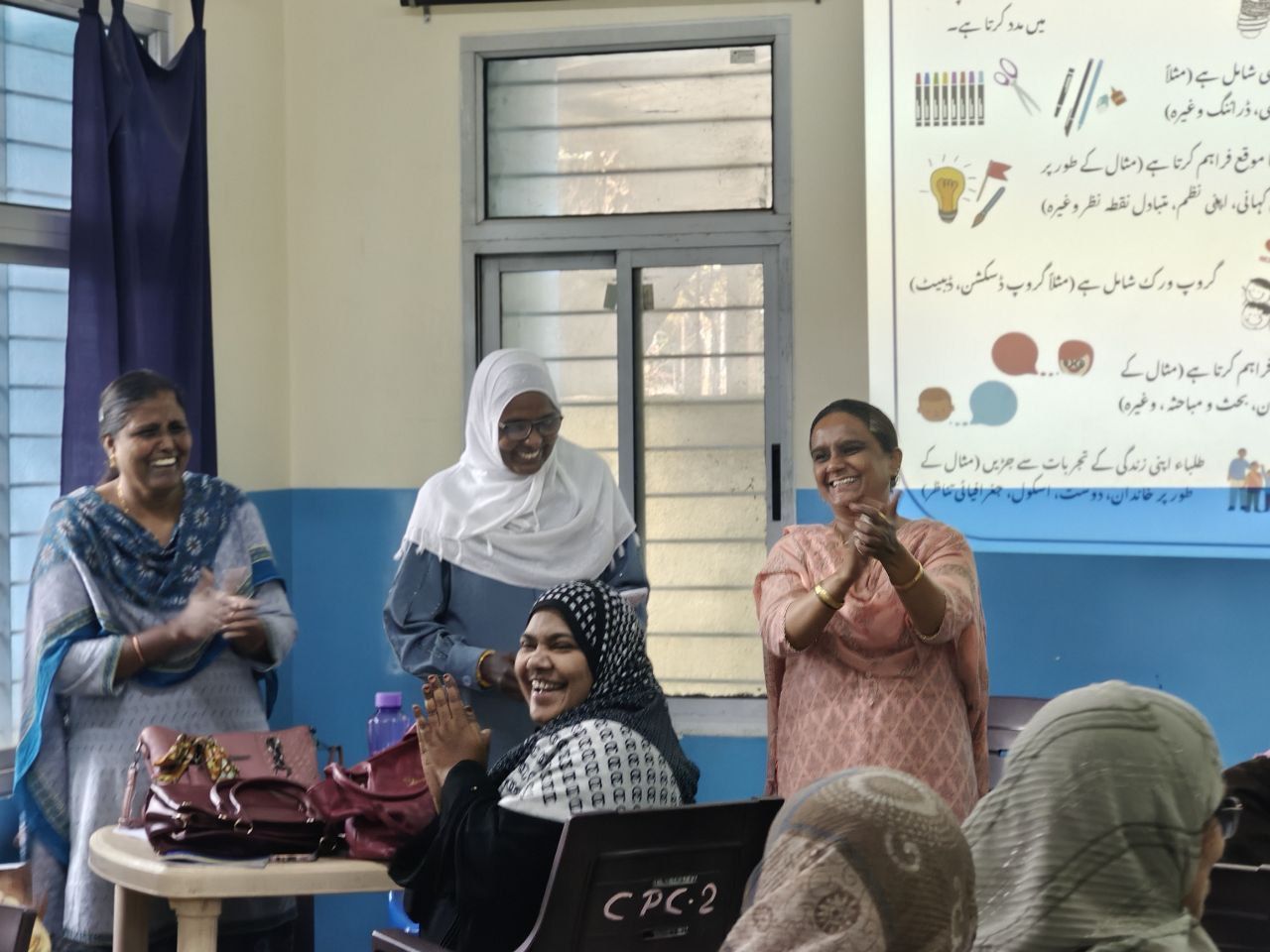
Teachers explored questions such as:
- How can storytelling enhance language acquisition and development?
- How can digital technologies be creatively integrated for storytelling?
- What strategies can link stories, technology, and learning in low-resource classrooms?
- What are common myths and challenges in language teaching and learning?
One teacher, Nikhatul Ain, Udru HPS, shared her experience:
“It is a completely new experience for us. Children get lost in their imaginative world. Whenever they listen to a story, they express their thoughts, and their thinking power increases. After listening to many stories, we saw that even those children who weren't able to speak at all or used to hesitate to speak would also happily respond without hesitation when asked questions about the story. They would come forward to speak about the story.
I used a story, Hakim Sahib ki Hichkiyan, relating it to a textbook story. I made them listen to the story and enact it. The children prepared a very nice skit within 5 minutes. One child became the Hakim Sahib by putting on a beard made out of cotton. Children went around the school and picked up small leaves and twigs to depict the preparation of natural medicines and remedies. It was a very humorous story, and they enjoyed themselves acting it out. Through this activity, there was a fresh enthusiasm born in the children. Even when we don't have electricity, we can do such activities because we only need our phones and a Bluetooth speaker”.
We equipped schools to empower adolescents against digital risks and social pressures
Our project, Hosa Hejje Hosa Dishe (New Steps, New Direction), expanded to nearly 500 schools across four districts in Karnataka this year, empowering adolescents to navigate online risks, patriarchal norms, and social pressures, including child marriage and digital addiction. At a time when young people face overwhelming online content and rampant misinformation, the project provides structured support to strengthen adolescent development.
Baseline and endline surveys of 580 girls from residential and non-residential schools across Kalaburagi, Mysuru, Raichuru, and Chamarajanagara show significant shifts in attitudes. After the intervention, 67% of girls recognize how psychological, intellectual, and physical changes shape their adolescence. About 78% now reject traditional gender roles in household responsibilities, 72% challenge stereotypical beauty standards, and 75% take active control over their life choices and careers rather than relying solely on their circumstances.
The project delivers impact through three core interventions. Kishori Clubs create teacher-facilitated safe spaces in schools for girls to discuss concerns and build confidence; Kishori Adda, our Instagram handle, counters toxic online content, reaching adolescents where they are already active; and Kishori Labs enable direct engagement in select schools for continuous learning and feedback. These efforts are reinforced with IVRS messages, podcasts, and MOOCs, extending learning beyond the classroom.
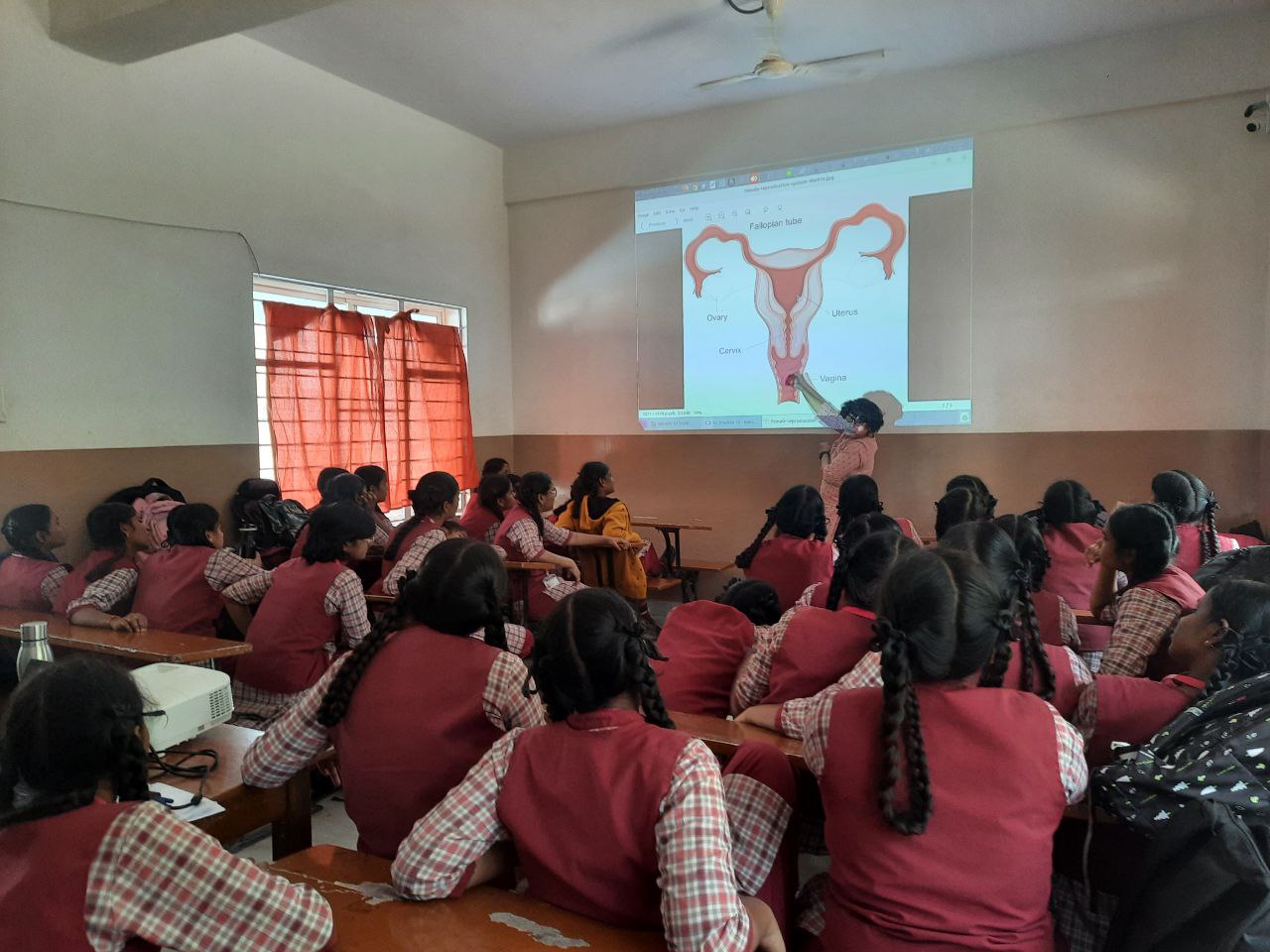
The intervention has gained recognition from the Department of School Education and Literacy, Karnataka. Government officials now mobilize teachers and principals to integrate Kishori Club activities into their schools, signaling progress toward systemic adoption. Teachers report that students who previously hesitated to speak now actively participate in discussions about their futures. In schools where the program operates, conversations about gender roles, career aspirations, and personal agency have become part of the everyday dialogue.
Event Highlights
Throughout the year, we were involved in key global policy events, convened critical roundtables and conferences, and participated in international forums to contribute key messages on digital justice in its many forms. Here are some highlights:
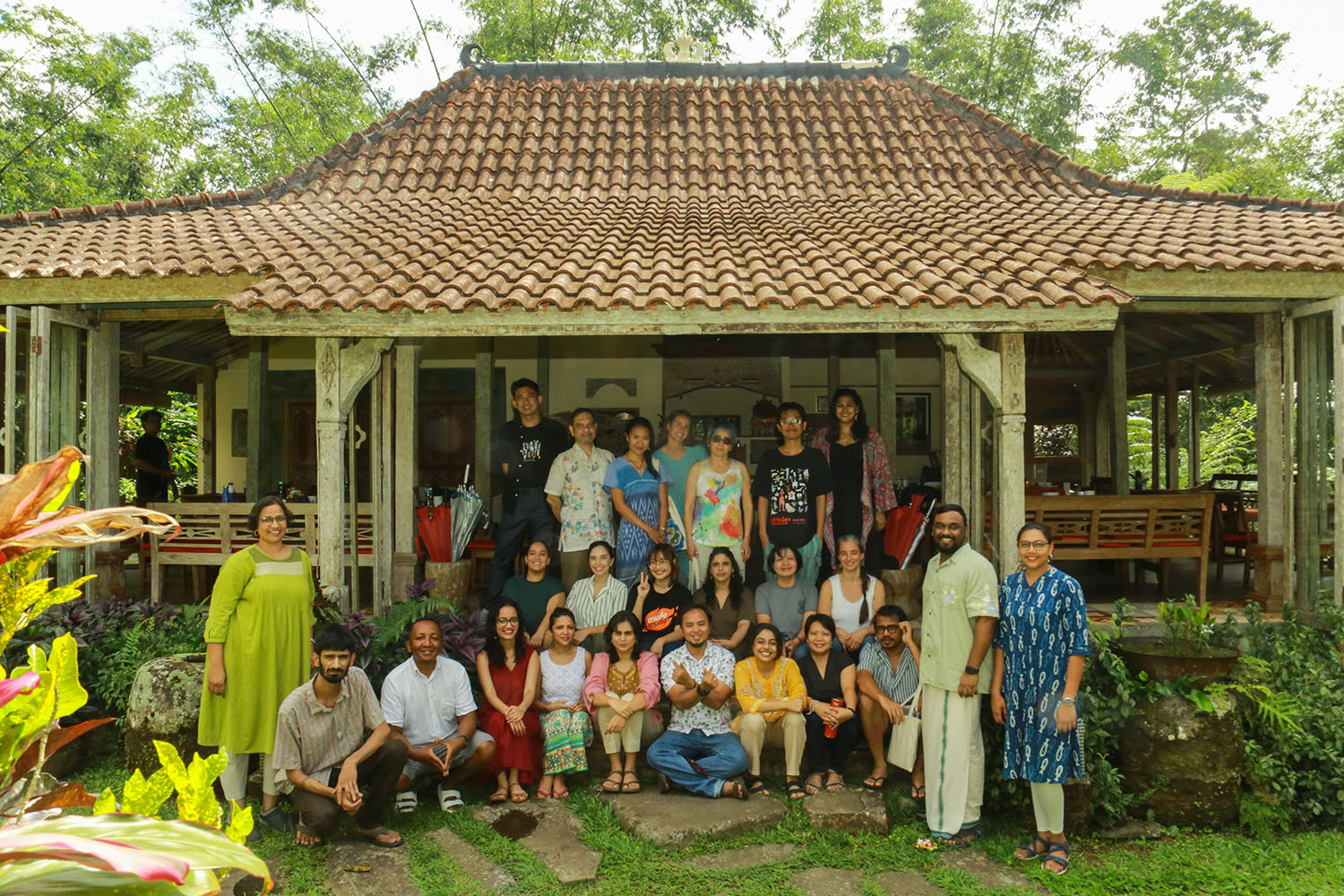
Read more about the Institute here.
Residential Institute on Frontiers and Frames for a New Digitality
4 March - 9 March 2025
Earlier this year, we hosted the second edition of our residential institute in Bali, Indonesia, supported by the Fair, Green and Global Alliance. The week-long program brought together 20 emerging civil society leaders from the Global South to critically analyze the political economy of the digital, interrogate the implications of platformization and AI, and chart collective pathways for action.
The institute deepened cross-regional solidarity, strengthened movement-building, and advanced feminist and justice-centered approaches to digital transformation—reinforcing our commitment to shaping a people-first digital future.
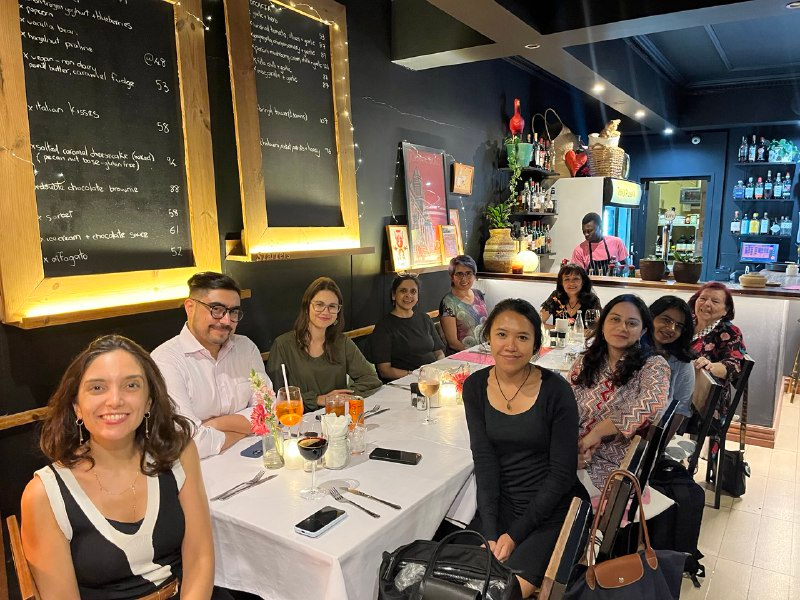
Read more details here.
WSIS and Beyond: Building a Civil Society Digital Justice Strategy
10 - 11 February 2025
To strengthen civil society coordination for the WSIS+20 review, we co-organized a strategic meeting in Johannesburg, South Africa, with partners from the Association for Progressive Communications (APC) in Africa, the Global Digital Justice Forum, and Emancipatory Futures Studies at the University of the Witwatersrand. The meeting brought together over 25 participants to develop advocacy strategies for the WSIS+20 process and intersecting global development agendas.
Participants advanced a multi-issue political strategy for digital justice, focusing on financing for digital infrastructure, communication rights, ecological transition, gender equity, and corporate accountability—laying the groundwork for coordinated civil society action ahead of the Financing for Development conference.
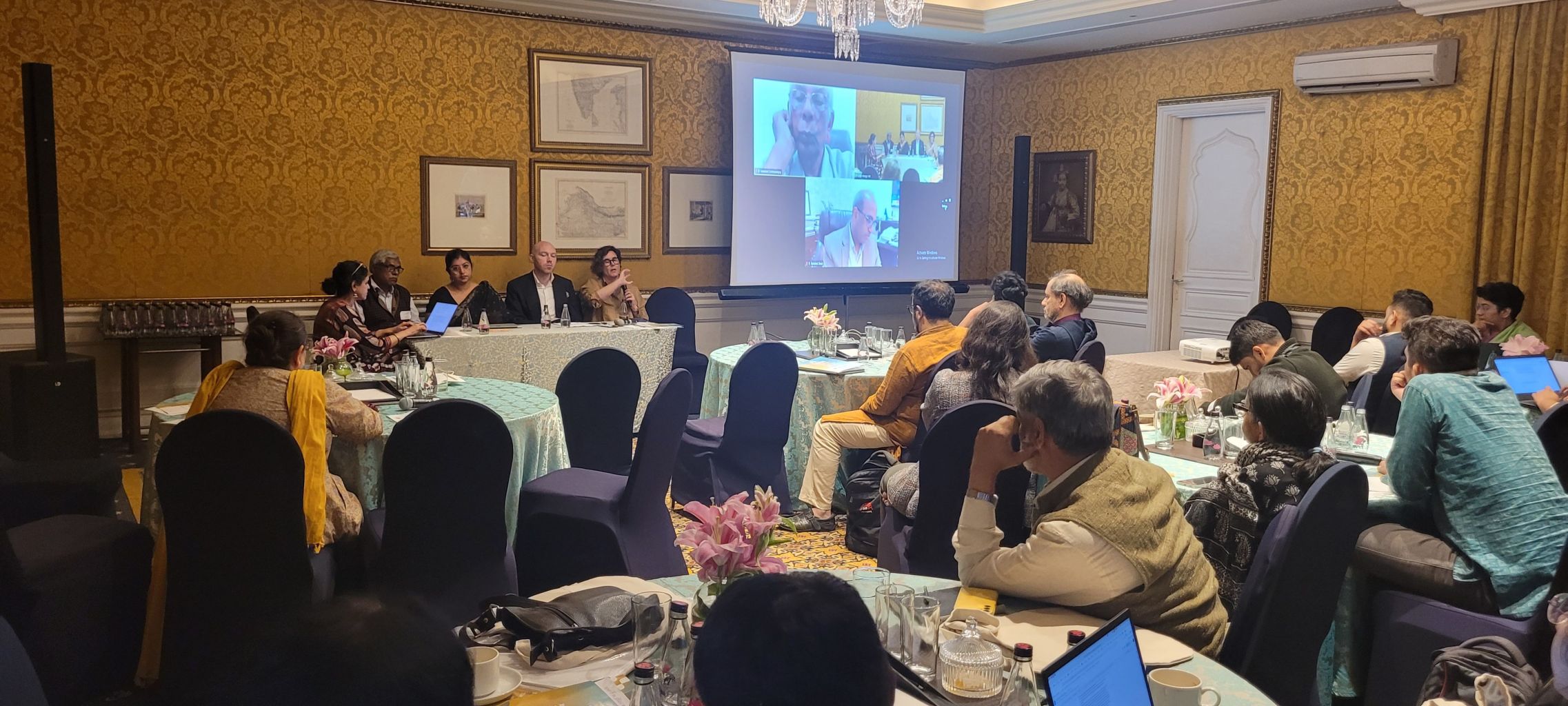
View the event report here.
Inclusive Digital Transformation: The DPI Approach and Beyond
10 January 2025
In partnership with Mazdoor Kisan Shakti Sangathan (MKSS) and the Social Accountability Forum for Action and Research (SAFAR), we co-hosted a roundtable in Bengaluru to critically examine the ethics, design, and governance of Digital Public Infrastructure (DPI). Supported by the European Union, Friedrich-Ebert-Stiftung (FES), the Department of Foreign Affairs and Trade (DFAT) Australia, and the Fair, Green and Global Alliance, the roundtable convened civil society leaders, technologists, and policymakers to reflect on India’s DPI trajectory and address emerging governance challenges.
We also launched our policy brief, ‘Recovering the ‘Public’ in India’s Digital Public Infrastructure Strategy’, highlighting the need to center accountability, inclusivity, and public interest in DPI frameworks.
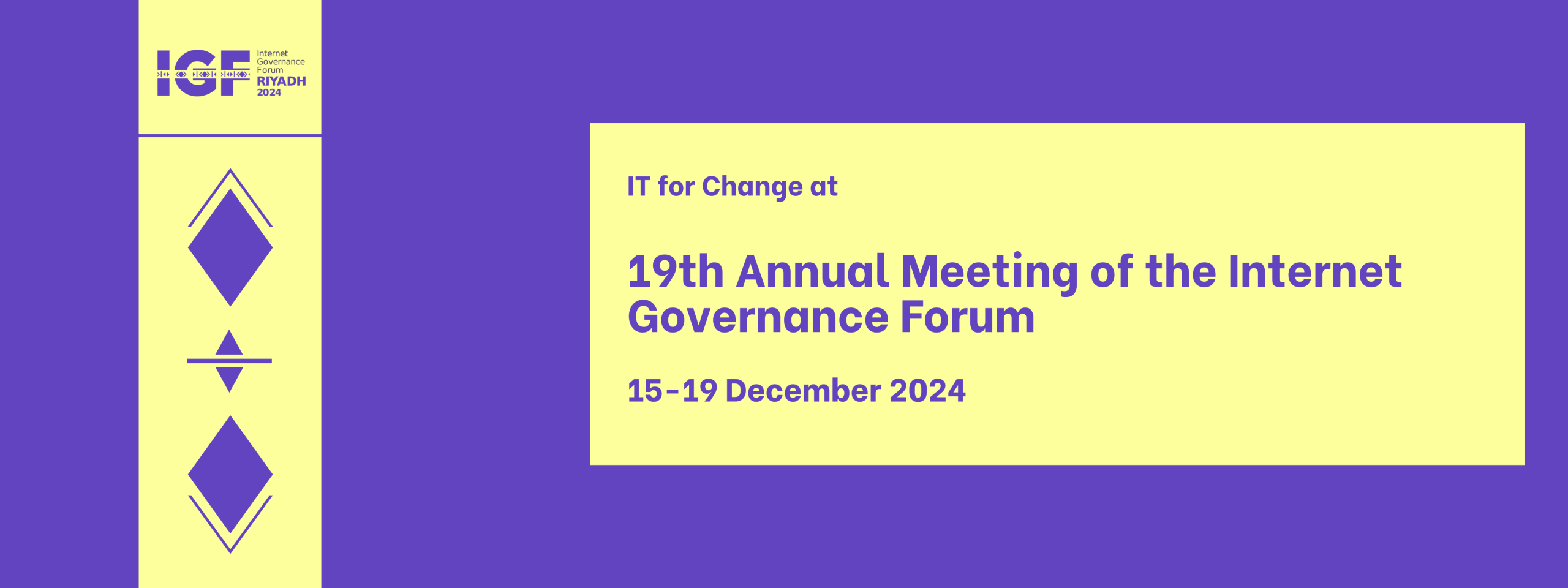
Learn more about our participation here.
Internet Governance Forum 2024
15-19 December 2024
We brought a strong feminist and Global South perspective to the Internet Governance Forum (IGF) 2024 in Riyadh, engaging across high-level policy spaces and multistakeholder dialogues. Our team participated in and moderated nine hybrid sessions, advancing discussions on platform regulation, AI governance, data justice, gender equality, and digital public infrastructure.
Key highlights included co-organizing the Day 0 event, ‘Fit-for-future? A Visioning Exercise on Digital Cooperation’, and contributing to sessions hosted by UN Women, UNESCO, and the Policy Network on AI. Our engagement amplified calls for inclusive, accountable, and justice-oriented global digital governance.
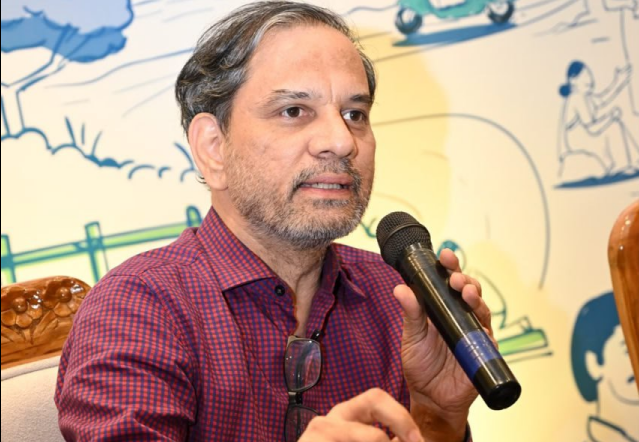
UN Consultation on Usage of AI in Education
Our Executive Director, Gurumurthy Kasinathan, joined an expert consultation convened by the UN Special Rapporteur on the Right to Education to inform the upcoming report to the UN General Assembly on a human rights-based approach to AI in education.
He presented Kerala’s Public EdTech Model as a global exemplar of a democratic, state-led alternative to privatized, Big Tech–driven education systems—underscoring the importance of equity, transparency, and public accountability in EdTech governance.
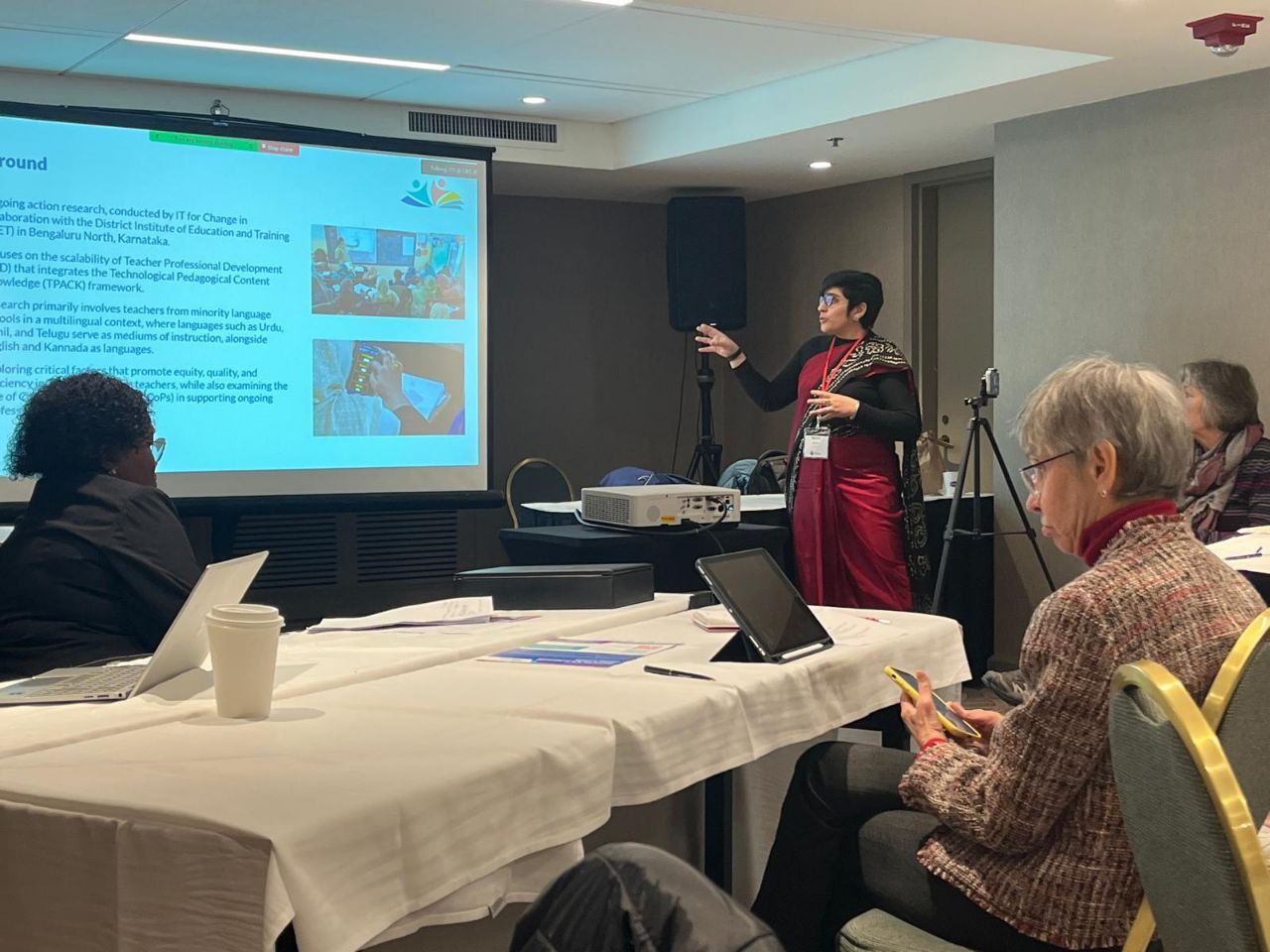
Learn more about the workshop here
CIES 2025 Annual Conference: Envisioning Education in a Digital Society, Chicago
At the 69th Annual Conference of the Comparative and International Education Society (CIES) in Chicago, Marzia Ibrahim co-facilitated a workshop titled ‘Harnessing ICTs to Improve Equity in Teacher Professional Learning Systems’, alongside ETI partners. She showcased IT for Change’s findings on how Free and Open Source Software (FOSS) and Open Educational Resources (OER) strengthen teacher agency and democratize access to professional learning opportunities at scale.
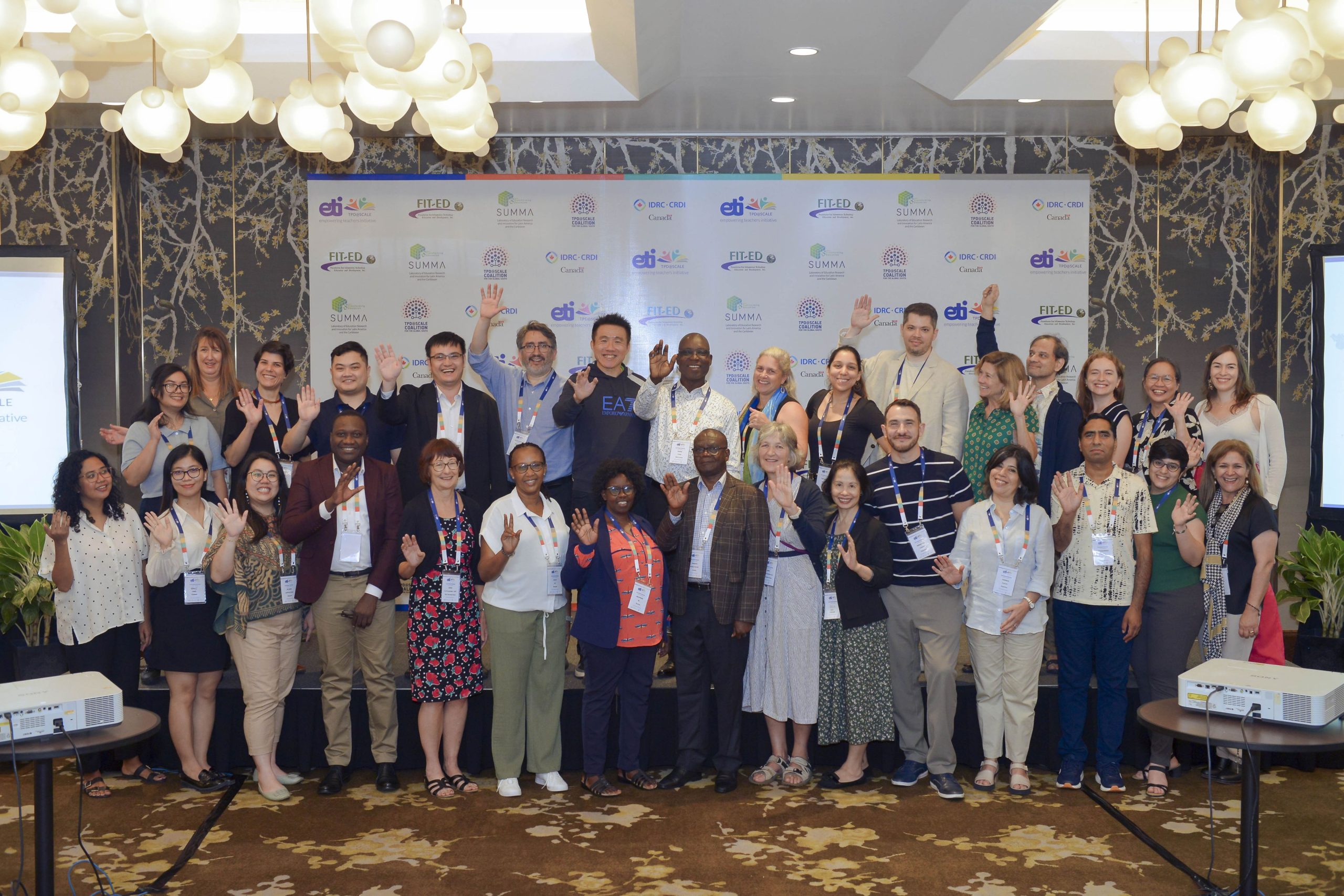
View our coverage of the event here
TPD@Scale Global Meeting, Hanoi, Vietnam
Our colleagues Marzia Ibrahim and Gurumurthy Kasinathan represented IT for Change at the Second Global Meeting of the Empowering Teachers Initiative (ETI) in Hanoi, Vietnam. The convening explored strategies to scale teacher professional development (TPD) through EdTech in the Global South. They presented our ongoing action research project with minority community schools in Bangalore North, demonstrating how the Technological Pedagogical Content Knowledge (TPACK) framework enables context-driven, scalable, and equitable teacher professional development.
Collaboration Footprint
We have worked alongside, and are associated with 100+ CSOs, academic institutions, union federations, private-sector entities, and government and multilateral bodies across the globe. Here is a glance at our list of collaborations for the year:
National
Arghyam
ASHA
Bharatiya Krishak Samaj
Breakthrough India
Credit Consultant Association Of India
Digital Empowerment Foundation
Indian Council for Research on International Economic Relation
Internet Freedom Foundation
Mazdoor Kisan Shakti Sangathan
Public Health Research Institute of India
Software Freedom Law Center
Social Accountability Forum for Action and Research
Tattle Civic Technologies
Asia-Pacific
Bangladesh NGOs Network for Radio and Communication
Focus on the Global South
IBON International
EngageMedia
Just Economy and Labor Institute
Khazanah Research Institute
Konfederasi Pergerakan Rakyat Indonesia
Lirne Asia
Samdhana Institute
Third World Network
UWA Tech and Policy Lab, University of Western Australia
Vietnam Organization for Gender Equality
Africa & MENA
Africa Open Data and Internet Research Foundation
AfronomicsLaw Forum
Arab NGO Network for Development
Media and Gender Enlightenment Initiative
Pollicy
Research ICT Africa
Southern and Eastern Africa Trade Information and Negotiations Institute
Southern Centre for Inequality Studies, University of the Witwatersrand, Johannesburg
North America
Centre for Innovation and Governance
Drivers Cooperative
Public Citizen
Europe
Tricontinental Centre
Clean Clothes Campaign
DiploFoundation
Distributed AI Research Institute (Data Workers’ Inquiry)
Food First Information and Action Network
Groupe de Recherche Pour Une Stratégie Économique Alternative
Nexus Research Cooperative
The Centre for Research on Multinational Corporations
Transnational Institute
Whynot Lab
Latin America
Data Impacta
Data Privacy Brazil
Derechos Digitales
Equidad
Instituto Brasileiro de Defesa do Consumidor
Instituto de Estudios Ecuatorianos
InternetLab
Latin American Information Agency
Mora Research Institute
Rhizomatica
Social Watch
Global
Association for Progressive Communications
Civil Society Group on Financing for Development
Commonwealth of Learning
CONCORD Europe
ETC Group
FIAN International
Forum on Information and Democracy
Gender & Technology Institute
Global Digital Inclusion Partnership
GRAIN
MediaLab
Open Knowledge Foundation
Oxfam International
People’s Health Movement
World Association for Christian Communication Global
East Africa Trade Union Confederation
Indian Federation of App-Based Transport Workers
International Trade Union Confederation
International Transport Workers Federation
Public Services International
UNI Global Union
College of Teacher Education, Belgavi, Government of Karnataka
College of Teacher Education, Chitradurga, Government of Karnataka
College of Teacher Education, Kalaburagi, Government of Karnataka
College of Teacher Education, Mysuru, Government of Karnataka
Commonwealth of Learning
Department of Information and Communications Technology, Government of the Philippines
Department of Rural Development and Panchayati Raj
Directorate of State Education Research and Training, Karnataka
District Centre for English, Thrissur, Kerala
District Institute of Education and Training, Bengaluru North
District Institute of Education and Training, Bengaluru South
District Institute of Education and Training, Mysuru
District Institute of Education and Training, Chamarajanagara
Administrative Office of the Deputy Director of Public Instructions, Kalaburagi
Administrative Office of the Deputy Director of Public Instructions, Raichuru
Department of Social Welfare, Government of Karnataka
European Union
G20 - T20
International Labour Organization
International Telecommunications Union
Jharkhand State Open University, Ranchi
Karnataka Residential Educational Institutions Society
Kendriya Vidyalaya Sanghatan
Kerala Development and Innovation Strategic Council, Government of Kerala
Kerala Infrastructure and Technology for Education, Government of Kerala
Madhya Pradesh Bhoj Open University, Bhopal
Malaviya Mission Teacher Training Center, University of Calicut, Kerala
Ministry of Electronics and Information Technology, Government of India
Ministry of Foreign Affairs, Netherlands
Ministry of Rural Development, Government of India
Ministry of Women and Child Development, Government of India
National Human Rights Commission, Government of India
NITI Aayog
Samagra Shiksha Karnataka
South Centre (G-77)
State Council of Educational Research and Training, Telangana
UNCTAD
UNESCO
UNFPA
UNICEF
UN Special Rapporteur on the Freedom of Expression
UN STI Forum
UN Women
Design Beku
Indian Software Product Industry Round Table
LabourNet
NASSCOM
Sewa Cooperative Federation
Vrutti
Both ENDS
British Asian India Foundation
Cognizant Foundation
EdelGive Foundation
European Union
Evangelisches Werk für Diakonie und Entwicklung e. V.
Ford Foundation
International Development Research Centre
Milan Foundation
Kotak Mahindra Bank Limited
Lightspeed Grants
Tata Trusts
Access to Knowledge for Development Centre, American University of Cairo
BES College of Teacher Education, Bengaluru
Center for Excellence in Teacher Education, Tata Institute of Social Sciences
Comparative Education Society of India
Institute of Development Studies
Institute of Social Studies Trust
Kristu Jayanti College, Bengaluru
London School of Economics
MS Ramaiah Institute of Management
National Law School of India University, Bengaluru
NMKRV College for Women, Bengaluru
Open Data Institute
Regional Institute of English, South India
Sri Sarvajna College of Education, Bengaluru
The New School, New York
Tilburg University
University of Calicut
University of Edinburgh
University of Manchester
University of Melbourne
University of São Paulo
University of Western Australia
University of the Witwatersrand
Vardhaman Mahaveer Open University, Kota, Rajasthan
Vijaya Teachers College, Bengaluru
Networks
We also anchor, and are closely involved with various policy, advocacy, and research networks on global digital justice issues. Here is a glance at the key networks we are part of:
APRCEM South Asia Working Group
Break Open Big Tech
Campaign of Campaigns
Comparative and International Education Society
Data Governance Network
Development Alternatives with Women for a New Era
Digital Trade Alliance
Digital Merger Watch
EdTech Watch
Fair Green and Global Alliance
Ford Tech and Society
Forum for Trade Justice
Gender and Trade Coalition
Global Digital Justice Forum
Global Policy Forum
Global Partnership on Artificial Intelligence
Global Trade Justice Network
Joint Action Committee Against Foreign Retail and E-commerce
Just Net Coalition
Make Amazon Pay
National Coalition on Education Emergency
OECD Watch
Our World Is Not For Sale
People’s Working Group on Multistakeholderism
Platform Cooperativism Consortium
Platform Governance Research Network
Right Digitalisation Network
Right To Education Forum
Transform Health Coalition
UNESCO Internet for Trust Knowledge Community
Women’s Rights Online Network
World Wide Web Foundation
Projects & Publications
Throughout the year, we were involved in key global policy events, convened critical roundtables and conferences, and participated in international forums to contribute key messages on digital justice in its many forms. Here are some highlights:
The Essential IT for Change Resource List: 2024-25
RESEARCH OUTPUTS
Pathways to Gender Equality in the Platform Economy: A Policy Agenda for Beijing+30 and Beyond, IT for Change, DAWN, and Friedrich-Ebert-Stiftung
Inclusive Digital Transformation – The DPI Approach and Beyond, IT for Change
The Unbearable Lightness of Being a Gig Worker: Analyzing Value Creation in Platformized Labor Relations in India Through the Prism of Social Reproduction Theory, Anuradha Ganapathy, Nandini Chami, and Sonakshi Agarwal
Beyond Platform Integration: Unpacking the True Promise of Digital Inclusion for MSMEs in India, Anuradha Ganapathy
Technology Integration for Equitable Education, IT for Change
Beyond Big Tech: A Framework for Building a New and Fair Digital Economy, IT for Change, People vs. Big Tech, The Balanced Economy Project
POLICY BRIEFS
Gendering the G20 Information Integrity Agenda. Merrin Muhammed Ashraf, Malavika Rajkumar, and Julia Powles.
Submission on the Draft Digital Personal Data Protection Rules, 2025, IT for Change
POLICY BRIEFS (CONTINUED)
Comments on the Draft Karnataka Platform-Based Gig Workers Bill, 2024 | IT for Change, Anita Gurumurthy, Nandini Chami, and Sadhana Sanjay
Response to the Public Consultation on the Draft Digital Competition Bill, IT for Change and Rishabh Bailey
Some Considerations for a Government-supported Ride-hailing Platform in Karnataka, IT for Change and Centre for Labour Studies, and National Law School of India University
Global Digital Justice Forum’s Inputs to the OHCHR on the use of AI and the UN Guiding Principles on Business and Human Rights, Global Digital Justice Forum
Submission to the Public Consultation on the OECD Draft Recommendation on Information Integrity, IT for Change
Gendering the G20 Information Integrity Agenda, Merrin Muhammed Ashraf, Malavika Rajkumar, and Julia Powles
BOOK CHAPTERS
WSIS+20: Reimagining Horizons of Dignity, Equity and Justice for Our Digital Future In GISWatch. Anita Gurumurthy and Nandini Chami
A Southern Agenda for Global Digital Governance. In Future of Global Governance: Perspectives from Global South. Anita Gurumurthy, Nandini Chami, Amay Korjan
RTE in Karnataka: Pursuit of Equitable and Inclusive Education through RTE. In Implementation of the Right of Children to Free and Compulsory Education Act, 2009: Where Do We Stand? Status Report 2024. Gurumurthy Kasinathan and Marzia Ibrahim
MEDIA ARTICLES
All the Rightful Inheritors of the Classroom, Anusha Hegde
Clubs Help Young Girls Navigate Their Way, Niranjana Sivaraman
MSMEs and E-commerce Adoption: Lessons from India, Anuradha Ganapathy
Global Digital Compact: Backsliding to a Failed Free-market Playbook?, Anita Gurumurthy and Nandini Chami
JOURNAL ARTICLES
The Pandemic and the Platformization of Education, Gurumurthy Kasinathan, Southern African Review of Education's special Issue: Researching, Teaching and Learning During Times of Crises: Experiences of the Global South
FROM THE DATASYN VAULT
The Circuits of Information in the Year of Elections
The UN Tax Treaty and Digital Justice Today
PODCASTS
Nan Voice Nan Choice. Hosa Hejje Hosa Dishe, IT for Change
EcoMinassat, DataSyn
What is Digital Citizenship, Marzia Ibrahim
Projects List
Ongoing Projects
Integrating EdTech in Pre-Service Teacher Education
(2024-2026)
Hosa Hejje Hosa Dishe - Phase II
(2023-2026)
Studying the Scaling of Teacher Professional Development for English Language Learning
(2023-2026)
Technology Integration for Equitable Education
(2023-2025)
Integrating Digital Story-based Pedagogy in Language Education
(2023-2026)
Assessing the AI Moment from a Global South Perspective
(2022-current)
Towards Gender Just Public Information System Design
(2021-current)
Feminist Digital Justice
(2019-current)
Fair, Green and Global (FGG) Alliance
(2021-2026)
- School of Feminist Economics on Feminist Digital Justice (2022-current)
- State of Big Tech
(2021-current)
- Digital Economic Integration of MSMEs in the Global South
(2022-current) - DataSyn Newsletter (2021-current)
- Big Tech & Society Media Fellowships (2022-current)
Reform the Gig: Research and Advocacy on Platform Workers’ Rights in India
(2020-current)
The Feminist Observatory of the Internet
(2020-current)
Data Governance Network
(2019-current)
Re-Wiring India's Digitalising Economy for Women's Rights and Well-being
(2020-2024)
Effective Ethical Frameworks for the State as an Enabler of Innovation
(2023-2025)
Planetary AI
(2024-current)
South 2.0
(2025-current)
Centering Worker’s Rights in Algorithmic Governance (with NLSIU)
Data Justice Case Studies Project - Centering Equity and Justice in Global Data Governance
(2024-current)
Completed Projects
Towards Real Diversity and Gender Equality in AI: Evidence-Based Promising Practices and Recommendations
(GPAI Project, 2024)
Financial Statements
BALANCE SHEET AS ON 31 MARCH 2025
All amounts are in INR
| 2023-24 | Liabilities | 2024-25 | % of total | 2023-24 | Assets | 2024-25 | % of total |
|---|---|---|---|---|---|---|---|
| 50,342,308 | Organisation Stabilization Fund | 22,276,465 | 11 | 2,118,207 | Fixed Assets | 47,954,083 | 24 |
| 579,203 | Corpus Donation | 869,369 | 0 | 0 | Non Current Assets | 10,223 | 0 |
| 31,985,424 | General Fund | 33,347,915 | 16 | 165,729,804 | Current Assets, Loans and Advances | 152,688,193 | 75 |
| 2,406,320 | Asset Fund | 47,954,083 | 23 | 1,166,256 | Receivables | 2,132,411 | 1 |
| 77,166,159 | Advance Account | 95,700,766 | 47 | ||||
| 6,534,851 | Sundry Payables | 2,636,311 | 1 | ||||
| 169,014,266 | Total | 202,784,910 | 100 | 169,014,266 | Total | 202,784,910 | 100 |
INCOME AND EXPENDITURE ACCOUNT FOR YEAR ENDED 31 MARCH 2025
All amounts are in INR
| 2023-24 | Expenditure | 2024-25 | % of total | 2023-24 | Income | 2024-25 | % of total |
|---|---|---|---|---|---|---|---|
| 48,990,735 | Personnel Costs | 56,883,389 | 64 | 67,428,185 | Funds Received | 74,490,962 | 83 |
| 14,207,475 | Operating Costs | 13,525,856 | 15 | 10,253,208 | Interest on Term Deposit & Savings Bank Account | 10,292,112 | 12 |
| 5,046,625 | Administration Costs | 4,081,717 | 4 | 971,095 | Income to the extent of Depreciation transferred from Asset fund | 869,481 | 1 |
| 971,095 | Depreciation | 869,481 | 1 | 10,600 | Withdrawal from Asset Fund | 0 | 0 |
| 5,503,841 | Excess of Income over Expenditure | 6,974,307 | 8 | 153,026 | Donation | 0 | 0 |
| 5,503,841 | Appropriation towards Organizational Expenses | 6,974,307 | 8 | 1,407,498 | Professional Fee and Other Income | 1,637,502 | 2 |
| 0 | Write back of provisions no longer required | 2,019,000 | 2 | ||||
| 80,223,612 | Total | 89,309,057 | 100 | 80,223,612 | Total | 89,309,057 | 100 |
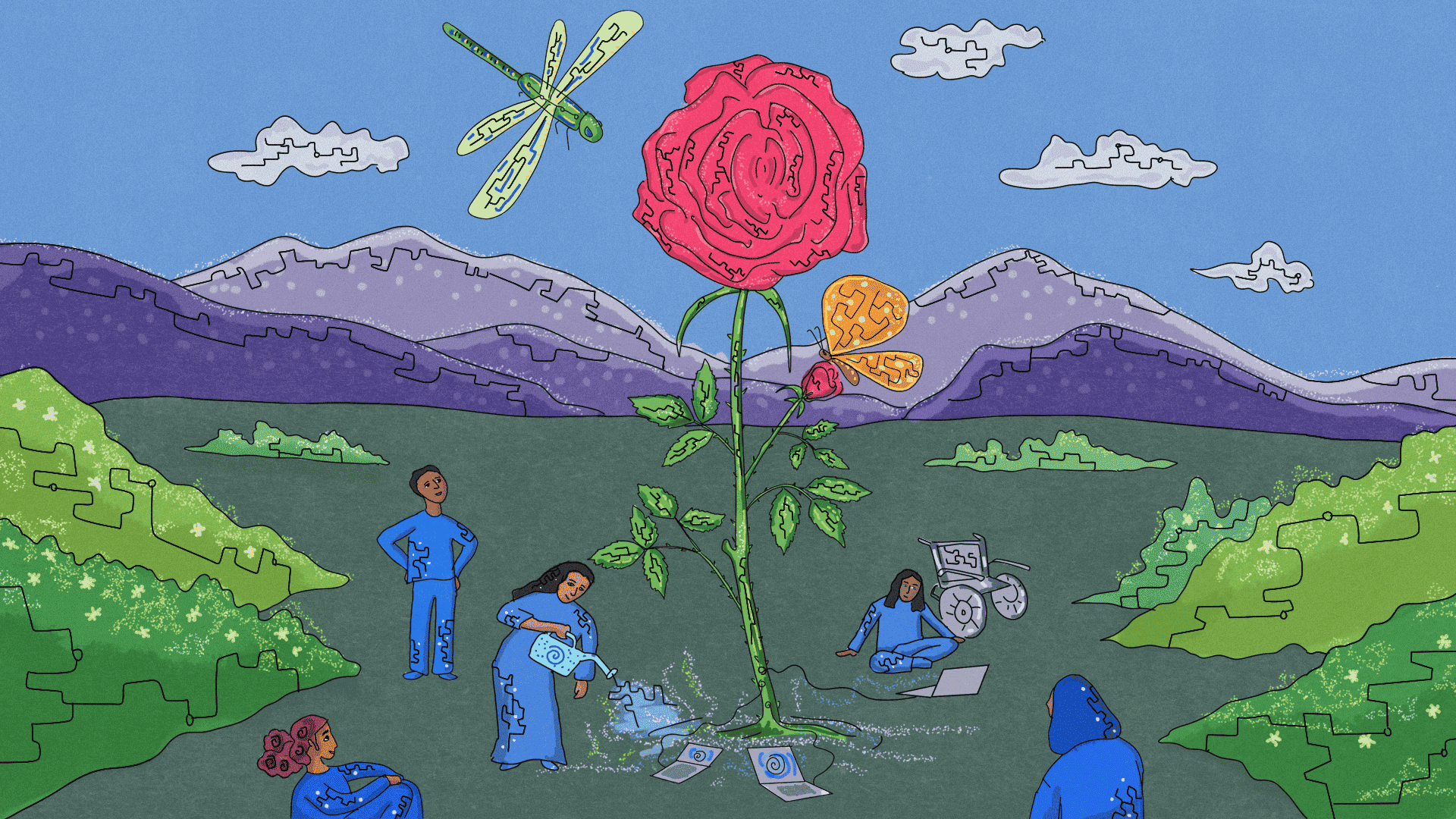
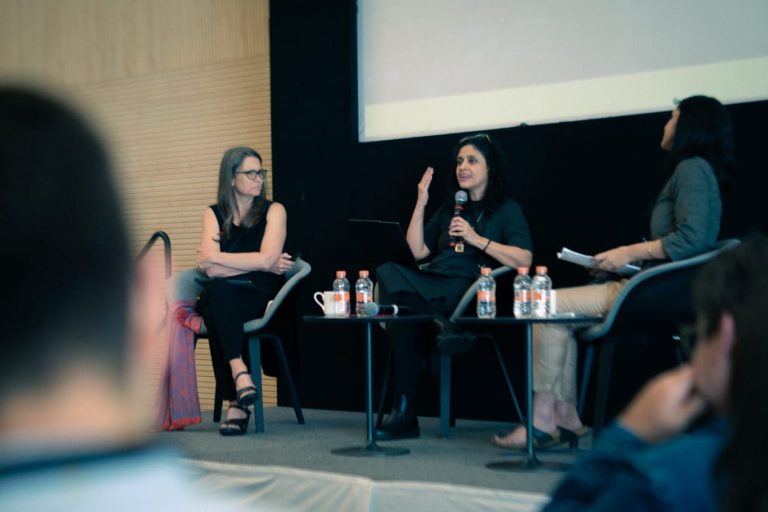
The IT for Change Social Report
Programming, Monitoring, Evaluation and Learning
Impact Footprint
Our Work Out in the World